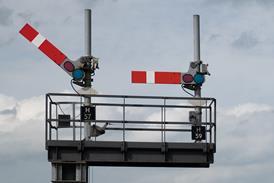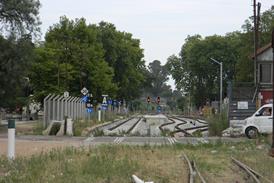ONCE AGAIN the exigencies of politics have dictated railway policy in the UK. Once again, the policy is ill-conceived, with the state taking more direct control over what is nominally a private industry (RG 3.05 p115). And once again the stage has been set for cuts in services and possible closures.
Even the Railways Act 1993, which brought about the world's most controversial privatisation process, included a provision to promote the use of rail for passengers and goods. A last-ditch attempt by the House of Lords to secure a similar provision in the Railways Act 2005 fell, along with amendments that would have broadly maintained the previous powers of Passenger Transport Executives over rail services in provincial conurbations, as the government rushed to deal with outstanding legislation ahead of the general election on May 5.
On April 6 the House of Lords voted through a package of seven amendments, forcing the bill back to the House of Commons. But the need to settle outstanding business over-rode any trivial matters of railway policy, and the Commons rejected all seven amendments outright, returning the bill to the Lords.
On the following day Lord Bradshaw, a former General Manager of British Rail's Western Region and previously a member of the Strategic Rail Authority, accused the government of having 'a secret agenda for the PTEs, which is that the PTEs will be the instrument lumbered with any of the government's proposals for the substitution of railway services with bus services' (RG 1.05 p16)'. He predicted that the PTEs would be presented with a choice 'formulated on the basis that there is insufficient money to sustain their railway services. The unfortunate PTE executives will be left with making the unpleasant choices about the future size and shape of the railway.' Aware that his fellow peers were unwilling to oppose the bill again as the legislation would fall, leaving the railway industry in limbo, Bradshaw warned that 'this issue will return to haunt us'.
For the government, Lord Davies said that PTEs will not be 'excluded from informing the development of the shape of services in their area ... all that the bill will do is remove the PTEs' ability to dictate to the Secretary of State, which is a power that can lead to confrontation'. At the eleventh hour Davies won the day, with all amendments rejected, and the Bill was granted Royal Assent on the same day.




















